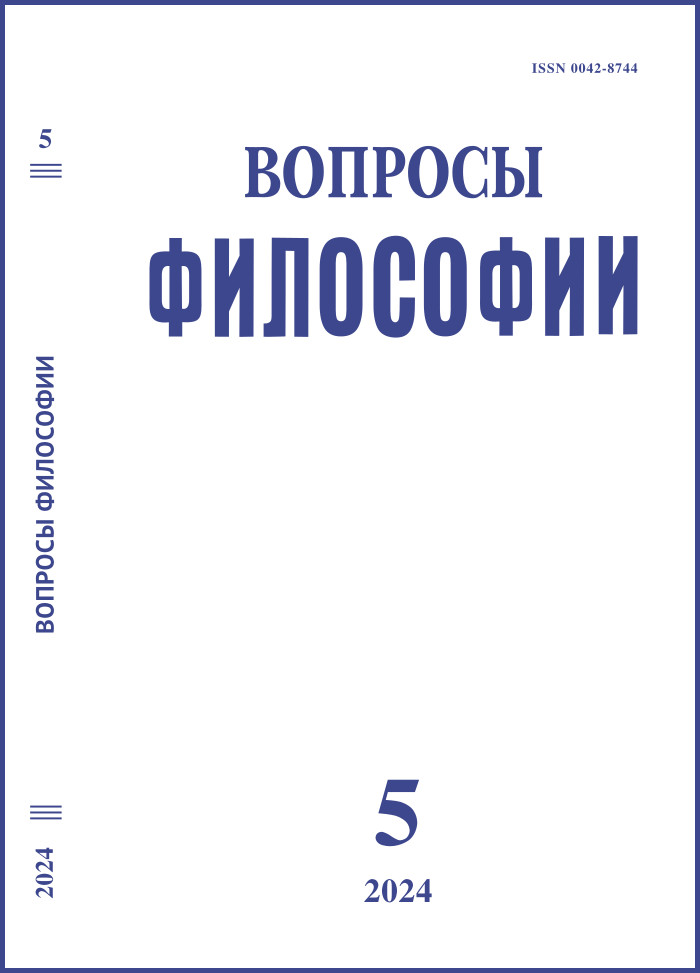The Power of Ethics: The Enduring (to the Anniversary of Abdusalam Guseynov)
DOI:
https://doi.org/10.21146/0042-8744-2024-5-81-89Abstract
The article deals with modern ethical collisions, the struggle between various kinds of utilitarian ethics and ethics of duty. The author considers Kant’s ethics as a universal and valuable basis of worldview, characteristic of domestic philosophy as a whole, and, at the same time, relies on the basic ideas of Abdusalam Guseynov’s ethical doctrine. The latter, at all stages of his work, develops
humanistic implications of Kantian ethics. His ethics acts as a practical form of the theory of absolute morality of the subject. Humanity, in its concrete manifestation, is the most important principle of constructing both ethics in general and the ethics of non-violence in particular. Non-violence is the most important component of moral teachings in all world religions and forms the central point of the practical philosophy by L.N. Tolstoy, M.L. King, and M. Gandhi. Despite the difference in their biographies and life activities, they all argue that the ideals of life and violent ways of achieving them are fundamentally incompatible. Also, they understood the meaning of life in a similar way – not as an abstract theoretical postulate, but as a concrete practical action. It is practice, understood in the Bakhtinian sense that becomes a clear proof of the enduring power of ethics. The article is dedicated to the anniversary of Academician of the Russian Academy of Sciences Abdusalam Guseynov, whose ethical research is the core of his creative biography.

